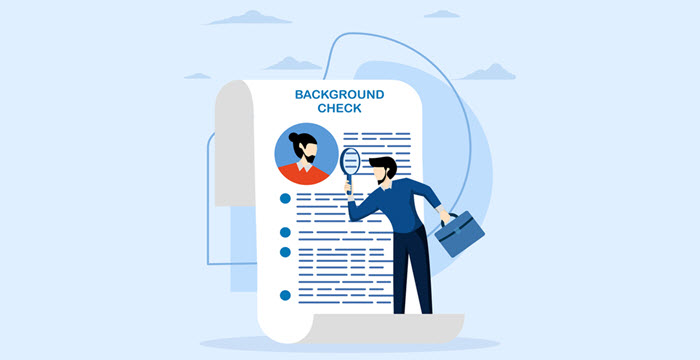What Are Some Common Mistakes Made During Background Verification Process
Posted on: December 24, 2023 by Gavin MuirheadBackground verification is a critical step in various contexts, especially in hiring processes. It helps employers ensure that they are bringing trustworthy and qualified individuals into their organizations. However, this process can be fraught with mistakes if not handled carefully. Here’s a comprehensive look at some common mistakes made during the background verification process:
- Not Obtaining Consent: One of the most significant errors in the background verification process is failing to obtain consent from the candidate. It’s legally required in many jurisdictions to inform the candidate and get their written consent before conducting a background check. Skipping this step can lead to legal complications and breaches of privacy laws.
- Lack of a Standardized Process: Failing to have a standardized and consistent process for background checks can lead to inconsistencies and potential biases. Employers should establish uniform criteria for all applicants to ensure fairness and compliance with equal employment opportunity laws.
- Overlooking International Background Checks: In today’s global workforce, it’s not uncommon for candidates to have worked or studied abroad. Neglecting to conduct international background checks can result in missing essential information about the candidate’s past.
- Ignoring Social Media Checks: While social media checks need to be conducted ethically and legally, completely ignoring this aspect can be a mistake. Social media can provide insights into a candidate’s behavior and character, but it’s crucial to avoid discriminatory practices based on this information.
- Not Verifying Education and Employment Gaps: Failing to verify educational qualifications and not questioning employment gaps can lead to hiring underqualified or potentially deceptive candidates. It’s essential to scrutinize these areas to confirm the candidate’s qualifications and work history.
- Relying Solely on Criminal Records: Over-reliance on criminal background checks can be problematic. Not all criminal histories are relevant to all positions, and in some regions, there are legal limitations on how this information can be used.
- Neglecting to Re-Screen Employees: Background checks shouldn’t be a one-time process. For long-term employees, periodic re-screening can be crucial, especially in sensitive positions, to ensure ongoing compliance and integrity.
- Incomplete or Superficial Checks: Sometimes, in the rush to fill a position, employers might conduct only superficial checks. This approach can miss critical information, leading to hiring decisions that might be regretted later.
- Not Following Up on Red Flags: When red flags emerge in a background check, failing to follow up for additional information can be a serious oversight. It’s important to investigate any concerning findings thoroughly.
- Disregarding Compliance with the Fair Credit Reporting Act (FCRA): In the United States, the FCRA sets standards for employment screening. Non-compliance with these standards can result in legal actions against the company.
- Failure to Maintain Privacy and Confidentiality: Mishandling the information obtained during background checks can lead to breaches of privacy and confidentiality. This information should be handled with utmost care and accessed only by authorized personnel.
- Using Inconsistent Criteria for Different Candidates: Applying different standards or criteria to different candidates can lead to accusations of discrimination. Employers must ensure that the same criteria are applied to all candidates.
- Not Communicating with Candidates: Failure to communicate with candidates, especially if their background check results in adverse employment decisions, is a common mistake. Employers should inform candidates about any negative findings and give them an opportunity to clarify or dispute them.
- Ignoring Candidate’s Rights to Dispute: Under laws like the FCRA, candidates have the right to dispute the findings of a background check. Not providing them with the opportunity or the necessary information to do so can lead to legal complications.
- Not Keeping Up with Legal Changes: The legal landscape regarding background checks is continuously evolving. Employers need to stay informed about changes in laws and regulations to ensure their processes remain compliant.

Contact Affordable Background Checks Today
Contact us today at Affordable Background Checks for your background verification needs. We understand the importance of reliable and thorough background checks in today’s fast-paced world. Whether you are an employer seeking to verify the credentials of potential employees, a landlord checking the history of prospective tenants, or an individual needing to ensure personal security, our services cater to a wide range of requirements.
At Affordable Background Checks, we pride ourselves on providing accurate, efficient, and cost-effective solutions tailored to your specific needs. Our experienced team uses the latest technology and an extensive network of resources to deliver comprehensive reports, giving you the confidence and peace of mind you deserve. Don’t compromise on safety and integrity; reach out to us now for dependable background verification services.




